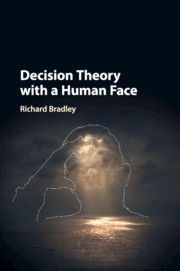Book contents
- Frontmatter
- Dedication
- Contents
- List of Figures
- List of Tables
- Preface
- Introduction
- PART I RATIONALITY, UNCERTAINTY AND CHOICE
- PART II PROSPECTIVE RATIONALITY
- PART III FACING THE WORLD
- 8 Multidimensional Possible-World Semantics
- 9 Taking Action
- 10 The Learning Agent
- PART IV RATIONALITY WITHIN BOUNDS
- Appendix: Proofs
- Bibliography
- Index
10 - The Learning Agent
from PART III - FACING THE WORLD
Published online by Cambridge University Press: 11 October 2017
- Frontmatter
- Dedication
- Contents
- List of Figures
- List of Tables
- Preface
- Introduction
- PART I RATIONALITY, UNCERTAINTY AND CHOICE
- PART II PROSPECTIVE RATIONALITY
- PART III FACING THE WORLD
- 8 Multidimensional Possible-World Semantics
- 9 Taking Action
- 10 The Learning Agent
- PART IV RATIONALITY WITHIN BOUNDS
- Appendix: Proofs
- Bibliography
- Index
Summary
INTRODUCTION
In the first part of the book we developed a theory of rational prospective agency based around a set of claims about what rationality requires of the judgements of agents: consistency between her beliefs, desires and preferences; between her conditional and unconditional attitudes; and between her attitudes and her choices. This theory can reasonably be criticised both for being too demanding and for being insufficiently so. Too demanding because real agents face resource constraints which make it impossible to form opinions about all possible contingencies and unwise that they attempt to do so. Insufficiently demanding, on the other hand, because it requires of agents only that their beliefs and desires be consistent, and not that they be responsive to what is true or valuable in any way. In the next part of the book we will take up the first challenge. Our task in this chapter will be to respond to the second.
There are two directions in which one might seek to constrain the sorts of attitudes that a rational agent can permissibly hold. First, one might put forward conditions that go beyond consistency but which fall short of simply demanding that the agent believe only truths and desire only what is good (which would be to demand what cannot generally be achieved). Second, one might require that the agent improves her opinions over time by responding appropriately to information acquired through interaction with the environment or through deliberation. Many conditions of both kinds are to be found in the epistemological literature, for different conceptions of belief, but I will focus on those deriving from the widely shared thought that an agent's beliefs should be constrained by the evidence she holds about the state of the world and, more generally, that her attitudes should reflect what she has learnt from experience.
Let us restrict attention to belief for the moment and return to the other attitudes later. Evidence-based constraints on belief can take both a synchronic form – that an agent's beliefs at a particular time should appropriately reflect the evidence that she holds at that time – and a diachronic one – that she should revise her beliefs appropriately in response to the acquisition of new evidence.
Information
- Type
- Chapter
- Information
- Decision Theory with a Human Face , pp. 182 - 212Publisher: Cambridge University PressPrint publication year: 2017
